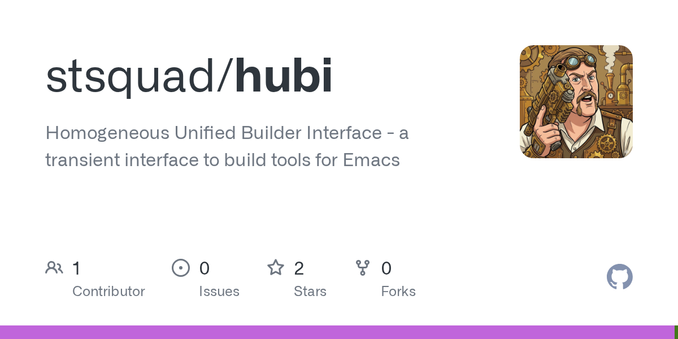2025-12-28 15:14:11
Happy Scale now uses the new Liquid Glass design!
One of my daily apps :-)
https://apps.apple.com/us/app/happy-scale/id532430574
2025-11-29 08:25:47
🇺🇦 #NowPlaying on KEXP's #StreetSounds
Naughty by Nature:
🎵 Hip Hop Hooray
#NaughtybyNature
https://djnos.bandcamp.com/track/naughty-by-nature-hip-hop-hooray
https://open.spotify.com/track/1SyQ6t9RdRBK0QUCS6a797
2025-12-28 17:02:41
I did a bunch of tidy-up to #hubi and tagged a initial release: https://github.com/stsquad/hubi/releases/tag/v0.1.0
Hubi is a
2025-11-28 17:19:57
RE: #fascism, especially American fascism, there's something you can do. If you're in the US, don't buy anything if you can until Dec 2nd. If you do have to buy something, buy second hand, or buy local. If you're outside, don't buy anything from the US or any US company at all.
Spread the word. Keep it on people's mind. Write your own post. Talk to people you know in person. Print out flyers and post them around town.
The system understands the language of money. If you want a response, you have to speak the language the system understands.
Trump is extremely vulnerable. Don't wait for the regime to recovery. Hit it hard right now, with an economic blockade. Who knows, it might just crumble.
#USPol
2026-01-28 19:01:05
FBI agents search election hub in Fulton County, Georgia (Fox News)
https://www.foxnews.com/politics/fbi-agents-search-election-hub-in-fulton-county-georgia
http://www.memeorandum.com/260128/p87#a260128p87
2026-01-29 06:22:43
🇺🇦 #NowPlaying on KEXP's #VarietyMix
The Mighty Diamonds:
🎵 Have Mercy
#TheMightyDiamonds
https://mightydiamonds.bandcamp.com/track/have-mercy-4
https://open.spotify.com/track/5KdTZMkWPdU8pFzSmKdJr1
2025-12-28 17:31:06
🇺🇦 #NowPlaying on KEXP's #Roadhouse
Mavis Staples:
🎵 We Got to Have Peace
#MavisStaples
https://mavisstaples.bandcamp.com/track/we-got-to-have-peace
https://open.spotify.com/track/1P53fDDQtze3ZgfFhcwAjj
2026-01-28 21:02:00
🇺🇦 #NowPlaying on KEXP's #MiddayShow
Public Enemy:
🎵 Don’t Believe the Hype
#PublicEnemy
https://djtron1.bandcamp.com/track/public-enemy-dont-believe-the-hype-dj-tron-remix
https://open.spotify.com/track/1i8rqFjsyv3GURH7aJ8Zns
2026-01-27 19:20:14
🇺🇦 #NowPlaying on KEXP's #MiddayShow
Cate Le Bon:
🎵 Is It Worth It (Happy Birthday)?
#CateLeBon
https://catelebon.bandcamp.com/track/is-it-worth-it-happy-birthday
https://open.spotify.com/track/2g5S7Pf6SIHzdw47muIDw9
2025-10-29 01:44:53
🇺🇦 #NowPlaying on KEXP's #DriveTime
Björk:
🎵 Violently Happy
#Björk
https://crisummi.bandcamp.com/track/bj-rk-violently-happy-cris-ummi-remix
https://open.spotify.com/track/66KzeZCQCe1dUl13nCasOv

